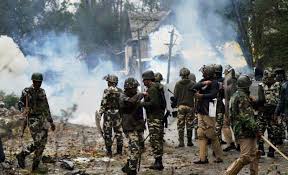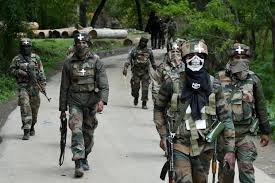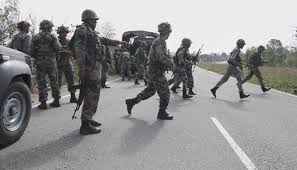 A top rebel leader in Kashmir was killed in a gunbattle with Indian forces Thursday, triggering street protests in the disputed Himalayan region, police said.
A top rebel leader in Kashmir was killed in a gunbattle with Indian forces Thursday, triggering street protests in the disputed Himalayan region, police said.
Abu Qasim was a Pakistani national and operations chief of the Lashkar-e-Taiba militant group, which India blames for several attacks across the country, including the 2008 Mumbai attack that killed 166 people, said police Director-General K. Rajendra Kumar.
There was no independent confirmation or comments from militants fighting against Indian rule in Kashmir. But as the news spread, hundreds of people tried to march to the site of the gunbattle, throwing rocks at government forces and setting up roadblocks.
Security forces responded with tear gas.
Syed Javaid Mujtaba Gillani, another top police officer, said police and army soldiers launched an operation Wednesday night in Kulgam, 70 kilometers (45 miles) south of Indian Kashmir’s main city of Srinagar, after a tip that Qasim was in the area. He was killed as he tried to break the cordon and flee the region early Thursday, he said.
Gillani said that Qasim was highly mobile and responsible for motivating, recruiting and training militants during the last five years.
According to Gillani, Qasim planned and executed some of the deadliest attacks against government forces, including one earlier this month in which a key police officer, Mohammed Altaf, known for his successful counterinsurgency operations, was killed.
India accuses Pakistan of funding and training the militants in the region. Islamabad denies the charge saying it only gives moral and diplomatic support to the rebels.
Kashmir is divided between India and Pakistan, but claimed in its entirety by both. Since 1989, militant groups have been fighting for Kashmir’s independence or its merger with neighboring Pakistan. More than 68,000 people have been killed in the armed rebellion and subsequent Indian crackdown.
Though incidents of violence have largely been suppressed by Indian forces, public opposition to Indian rule remains widespread in the mostly Muslim territory and is now mainly expressed through street protests.




